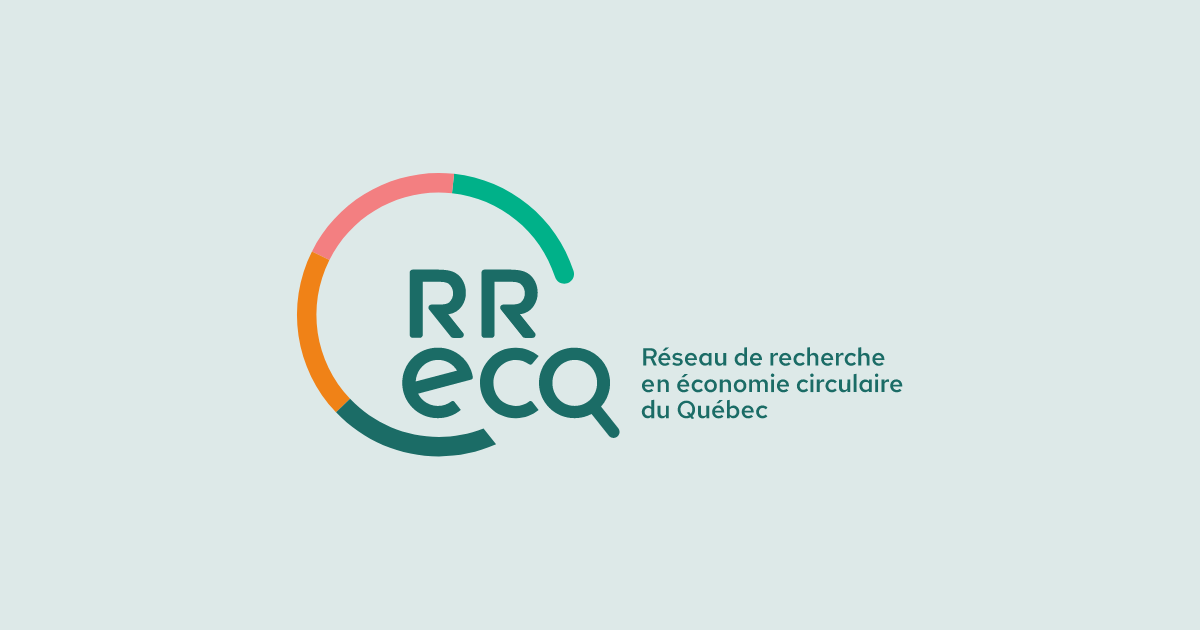The impact of the circular economy on biodiversity: towards an integrated approach to support decision-making
Developing a conceptual and operational framework, indicators and concrete tools to assess the impact of circularity strategies on biodiversity, and vice versa.

This transdisciplinary research project aims to strengthen the understanding and integration of the links between the circular economy (CE) and biodiversity, in order to support public and sectoral decision-making in line with the targets of the Kunming-Montreal Global Biodiversity Framework and Quebec's Nature 2030 Plan. The objective is to develop a conceptual and operational framework, indicators and concrete tools to assess the impact of circularity strategies on biodiversity, and vice versa. The project is led by a group of recognized academic and community partners, who bring together expertise in circular economy, biodiversity science and conservation:
Quebec Circular Economy Research Network (RRECQ): A unique network in Canada, mobilizing more than 230 researchers to strengthen the capacity to deploy circularity strategies across industrial sectors and territories, with a view to a sustainable transition.
Quebec Centre for Biodiversity Science (QCBS): A recognized inter-institutional network that helps position Quebec as a leader in biodiversity science. It mobilizes a broad community of researchers around ecosystem monitoring, biodiversity change forecasting and decision-making support, drawing on a diversity of approaches ranging from observation technologies to social sciences.
Société pour la nature et les parcs (SNAP Québec): Non-profit organization dedicated to nature protection. Recognized for its collaborative approach with governments, First Nations, Inuit, industry stakeholders and local communities.
Biodiversité Québec: Initiative supported by the government and the scientific community. Aims to collect and promote biodiversity observation data, and to produce accessible syntheses and tools for decision-makers and land managers. By combining these expertises, the project aims to develop integrated and territorialized approaches, based on workshops, literature reviews and concrete case studies, in order to equip decision-makers and accelerate ecological transitions that bring benefits to nature and society.
For more information, contact us :
Quebec Circular Economy Research Network (RRECQ): A unique network in Canada, mobilizing more than 230 researchers to strengthen the capacity to deploy circularity strategies across industrial sectors and territories, with a view to a sustainable transition.
Quebec Centre for Biodiversity Science (QCBS): A recognized inter-institutional network that helps position Quebec as a leader in biodiversity science. It mobilizes a broad community of researchers around ecosystem monitoring, biodiversity change forecasting and decision-making support, drawing on a diversity of approaches ranging from observation technologies to social sciences.
Société pour la nature et les parcs (SNAP Québec): Non-profit organization dedicated to nature protection. Recognized for its collaborative approach with governments, First Nations, Inuit, industry stakeholders and local communities.
Biodiversité Québec: Initiative supported by the government and the scientific community. Aims to collect and promote biodiversity observation data, and to produce accessible syntheses and tools for decision-makers and land managers. By combining these expertises, the project aims to develop integrated and territorialized approaches, based on workshops, literature reviews and concrete case studies, in order to equip decision-makers and accelerate ecological transitions that bring benefits to nature and society.
For more information, contact us :
- Rim Khlifa - rim.khlifa@mcgill.ca
- Andrew Gonzalez - andrew.gonzalez@mcgill.ca
- Fanie Pelletier - fanie.pelletier@USherbrooke.ca
- Najet Guefradj - najet.guefradj@mcgill.ca
Funding source: MELCCFP, FRQ
Dominique Gravel, Fanie Pelletier, Rim Khlifa, Zahra Housseini,Mathias Glaus,Marc Journeault,Daniel Normandin,Cathy Baptista,Emmanuel Benoit Raufflet,Annie Levasseur,Frédéric Lewis,Sabrina Cholette
Added by: Valeria, 2025-08-21

